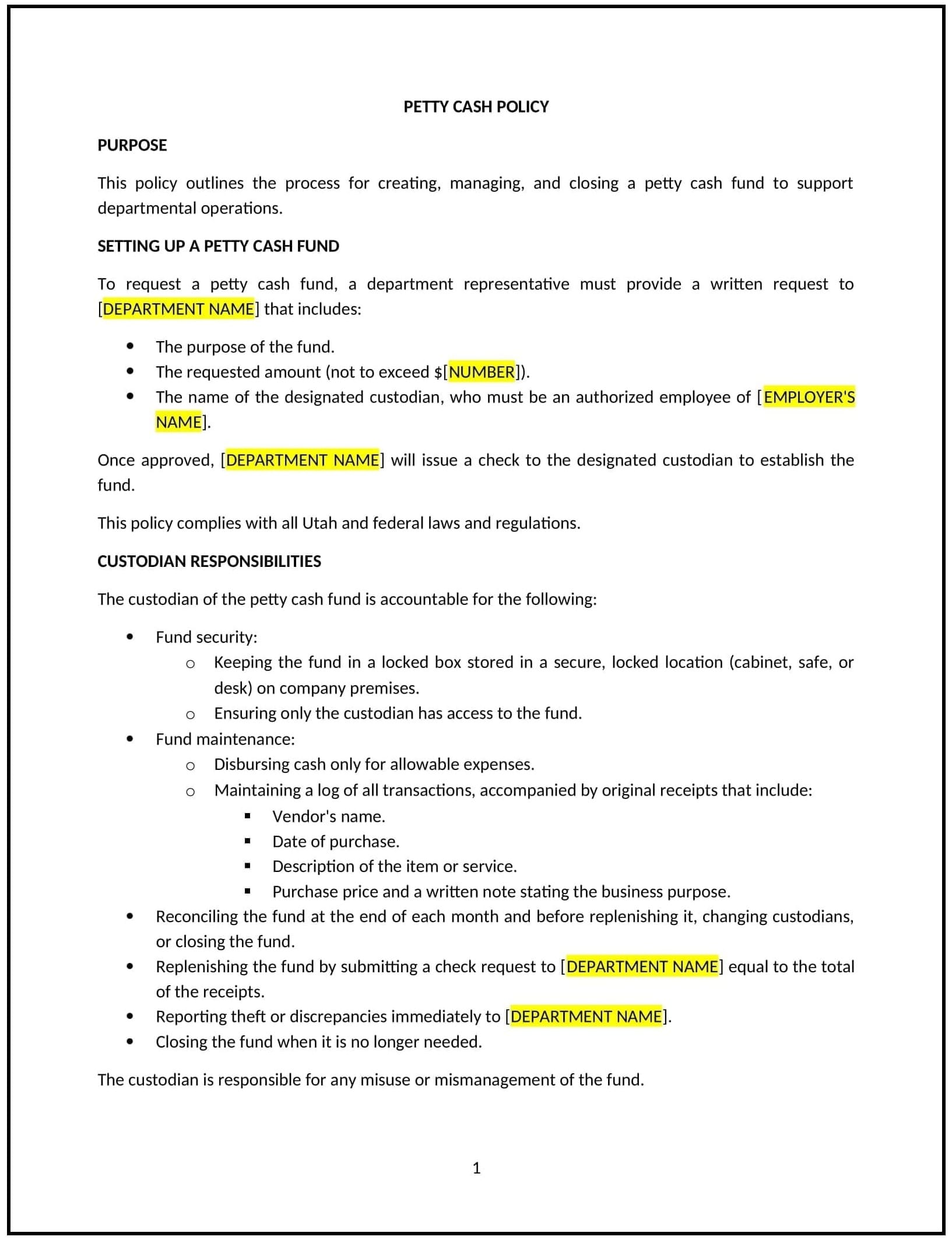Got contracts to review? While you're here for policies, let Cobrief make contract review effortless—start your free review now.

Customize this template for free
Petty cash policy (Utah)
This petty cash policy is designed to help Utah businesses establish guidelines for managing petty cash funds. It outlines procedures for disbursing, tracking, and reconciling petty cash to ensure accountability and prevent misuse.
By adopting this policy, businesses can maintain financial control, reduce the risk of fraud, and align with general best practices for cash management.
How to use this petty cash policy (Utah)
- Define petty cash: Explain what petty cash is and its purpose, such as covering small, incidental expenses.
- Establish fund limits: Specify the maximum amount of petty cash that can be maintained and the maximum amount per transaction.
- Assign custodians: Designate employees responsible for managing petty cash funds and maintaining records.
- Outline disbursement procedures: Provide steps for requesting and approving petty cash disbursements, including required documentation.
- Require receipts: Ensure all petty cash transactions are supported by receipts or invoices.
- Conduct regular reconciliations: Specify how often petty cash funds should be reconciled and replenished.
- Train employees: Educate custodians and employees on petty cash procedures and accountability.
- Review and update: Assess the policy annually to ensure it aligns with evolving financial practices and business needs.
Benefits of using this petty cash policy (Utah)
This policy offers several advantages for Utah businesses:
- Maintains financial control: Provides clear guidelines for managing petty cash funds responsibly.
- Reduces fraud risk: Ensures accountability by requiring documentation and regular reconciliations.
- Aligns with best practices: Offers a structured approach to managing petty cash.
- Enhances transparency: Demonstrates a commitment to financial accountability and integrity.
- Supports audits: Ensures petty cash records are accurate and available for audits.
Tips for using this petty cash policy (Utah)
- Communicate the policy: Share the policy with employees and include it in the employee handbook.
- Provide training: Educate custodians and employees on petty cash procedures and accountability.
- Monitor compliance: Regularly review petty cash transactions and reconciliations to ensure adherence to the policy.
- Address issues promptly: Take corrective action if petty cash funds are mishandled or discrepancies are found.
- Update regularly: Assess the policy annually to ensure it aligns with evolving financial practices and business needs.